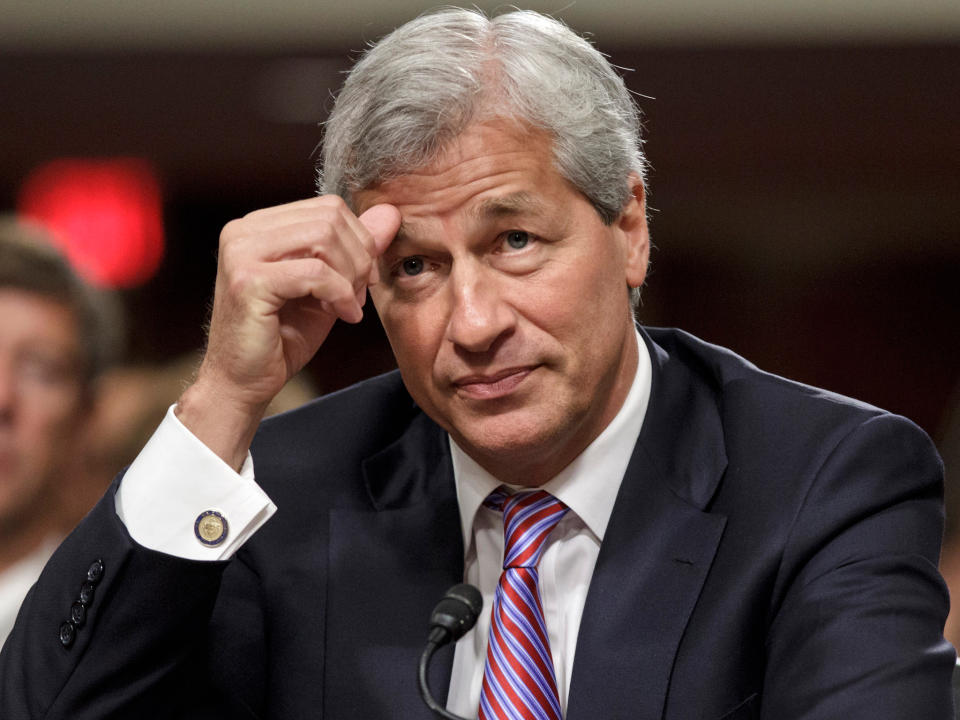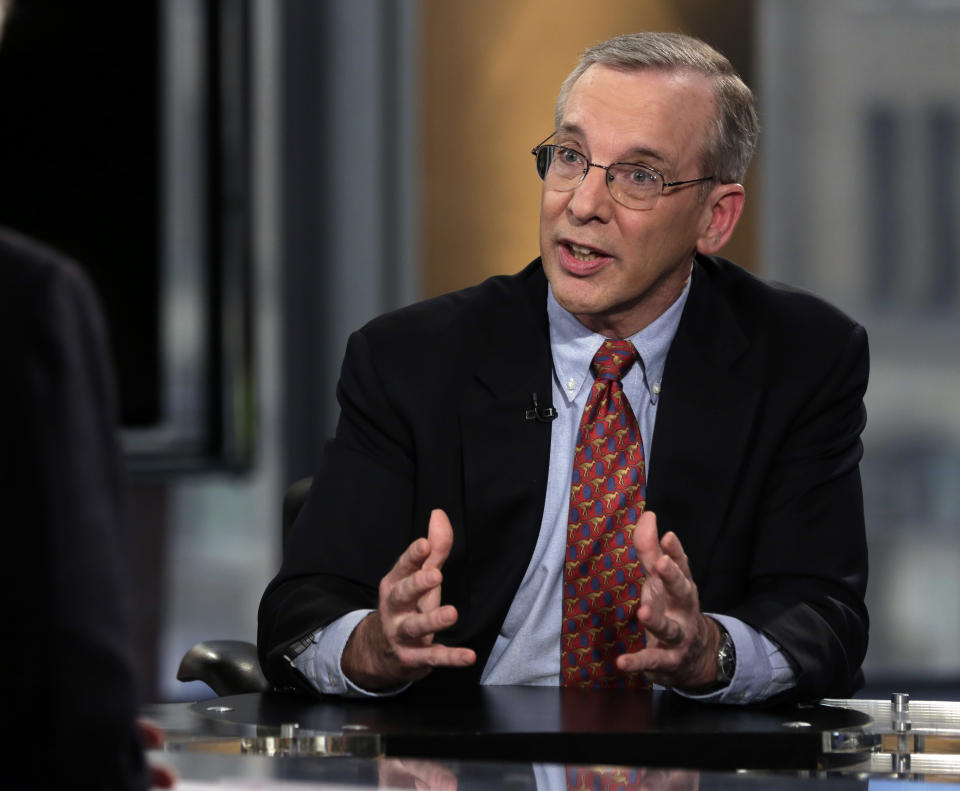Big banks, retail sales — What you need to know in markets on Friday
Stocks are at record highs.
After Wednesday saw markets log their first down day of the year, markets soared on Thursday with U.S. equities going out near their highs of the session at new records.
And this rally comes ahead of the busiest day of the week with major financial institutions marking the unofficial beginning of fourth quarter earnings season and the week’s most important economic data set for release.
At 8:30 a.m ET, the December reading on consumer prices as well as the December report on retail sales will come out, with economists looking for a 0.5% uptick in retail sales and a 0.2% monthly increase in prices excluding the more volatile costs of food and gas.
On the earnings side, JP Morgan (JPM), Wells Fargo (WFC), PNC Financial (PNC), and BlackRock (BLK) will all report earnings with most of the attention going to JP Morgan and any comments its CEO Jamie Dimon makes on the company’s conference call. This will also begin an earnings period in which investors will start to get some of the most concrete executive commentary about how the tax reform plan passed late last year by the Trump administration could impact results in the year ahead.

On Thursday, we saw the latest example of big U.S. companies responding to the corporate tax cut as Walmart (WMT) announced it would raise its minimum wage to $11 an hour, though this move came as the company announced it would also close 63 of its Sam’s Club wholesale stores.
The New York Fed isn’t worried about the stock market
Outgoing New York Fed president Bill Dudley isn’t too worried about the stock market.
“One area [of the economy] I might be slightly—but not particularly—worried about is financial market asset valuations, which I would characterize as elevated,” Dudley said in a speech on Thursday.
“While valuations are noteworthy, I am less concerned than I might be otherwise because the economy’s performance and outlook seem consistent with what we see in financial markets. Volatility in the real economy has been low, and this has been matched by low volatility in financial markets, which has helped support high valuations.”
Dudley adds that given the higher capital requirements the Fed has imposed on financial institutions since the crisis, a decline in financial markets could be more easily withstood. “It was the collapse of confidence in the financial system in 2008 that caused credit availability to dry up, contributing greatly to the severity of the Great Recession,” Dudley said.

On Thursday, stocks rallied again to bring the year-to-date gains for the Dow and S&P 500 to about 3.5% after just eight trading days. Clearly, investors have started the year with an appetite for financial assets.
Elsewhere in his speech, Dudley said that he is skeptical that the economic growth some argue the tax bill could spur will actually materialize. Dudley said he expects the 1% decline in federal revenues in 2018 and 2019 will exceed the pace of growth that results from these cuts, noting that “most of the tax cuts accrue to the corporate sector and to higher-income households that have a relatively low marginal propensity to consume. This suggests that a significant portion of the tax cuts will be saved, not spent.”
The purchase of financial assets — read: stocks — by corporates and households is a form of this saving.
But the announcements we’ve seen from companies paying bonuses or raising wages point to a strong year for consumer spending, as those impacted by these announcements (however politically cynical they may be) are at the lowest end of the earnings scale and thus have the highest marginal propensity to consume. (Meaning these folks will spend more of each additional dollar of income they receive than someone who already earns more.)
Dudley added that, “On the household side, the impact [of the tax plan is] likely to be attenuated by the temporary nature of many important provisions. Households may not spend much of the additional after-tax income if they perceive the gains as likely to be transitory.”
Yet this is a very economist way to think about an increase in income, however temporary it may be. And the enthusiasm we’ve seen in financial markets to start the year points to a broad desire to spend any tax-related income rather than save it. Which brings into focus one of Dudley’s concerns as we head into 2018 — an overheating economy.
—
Myles Udland is a writer at Yahoo Finance. Follow him on Twitter @MylesUdland
Read more from Myles here:


